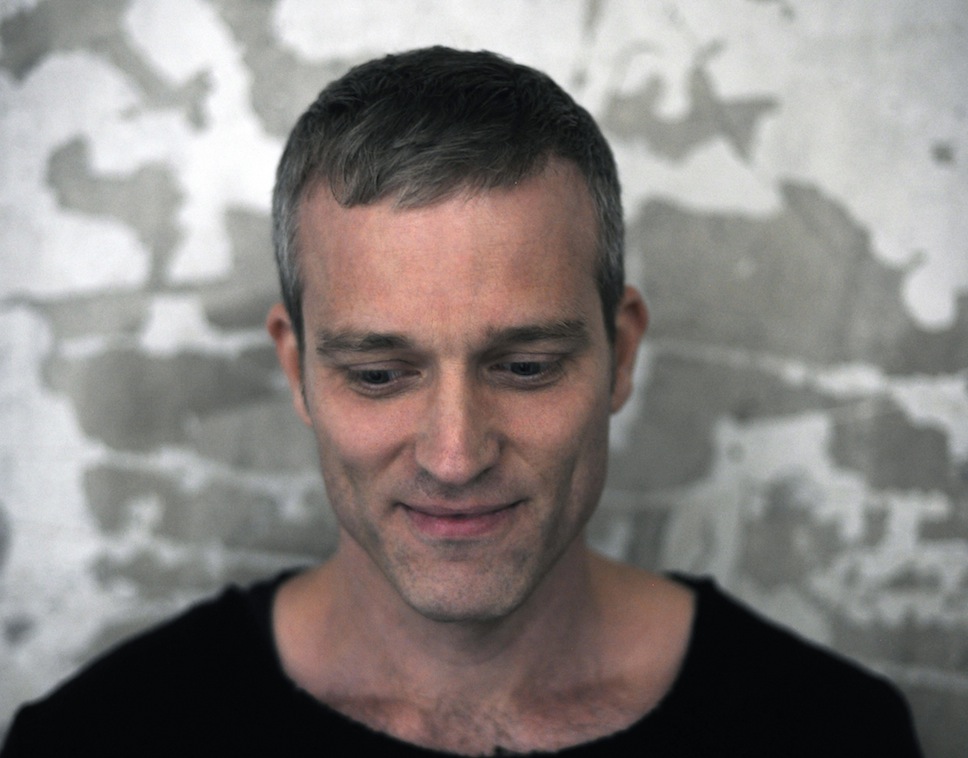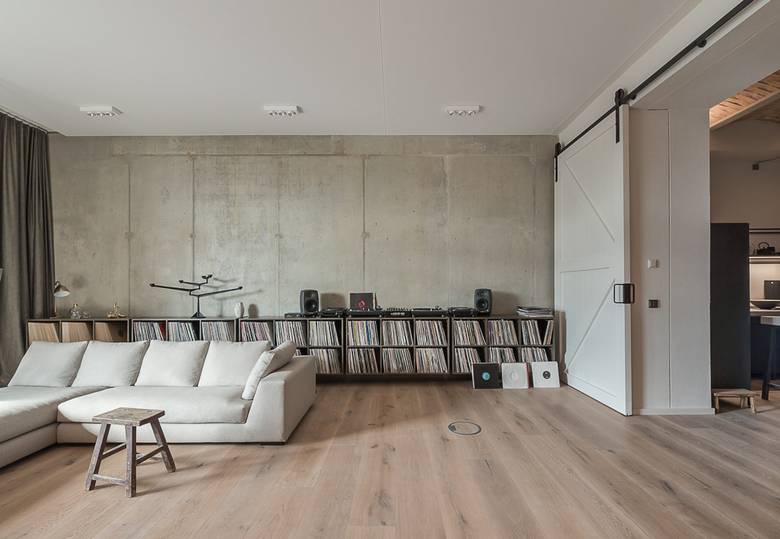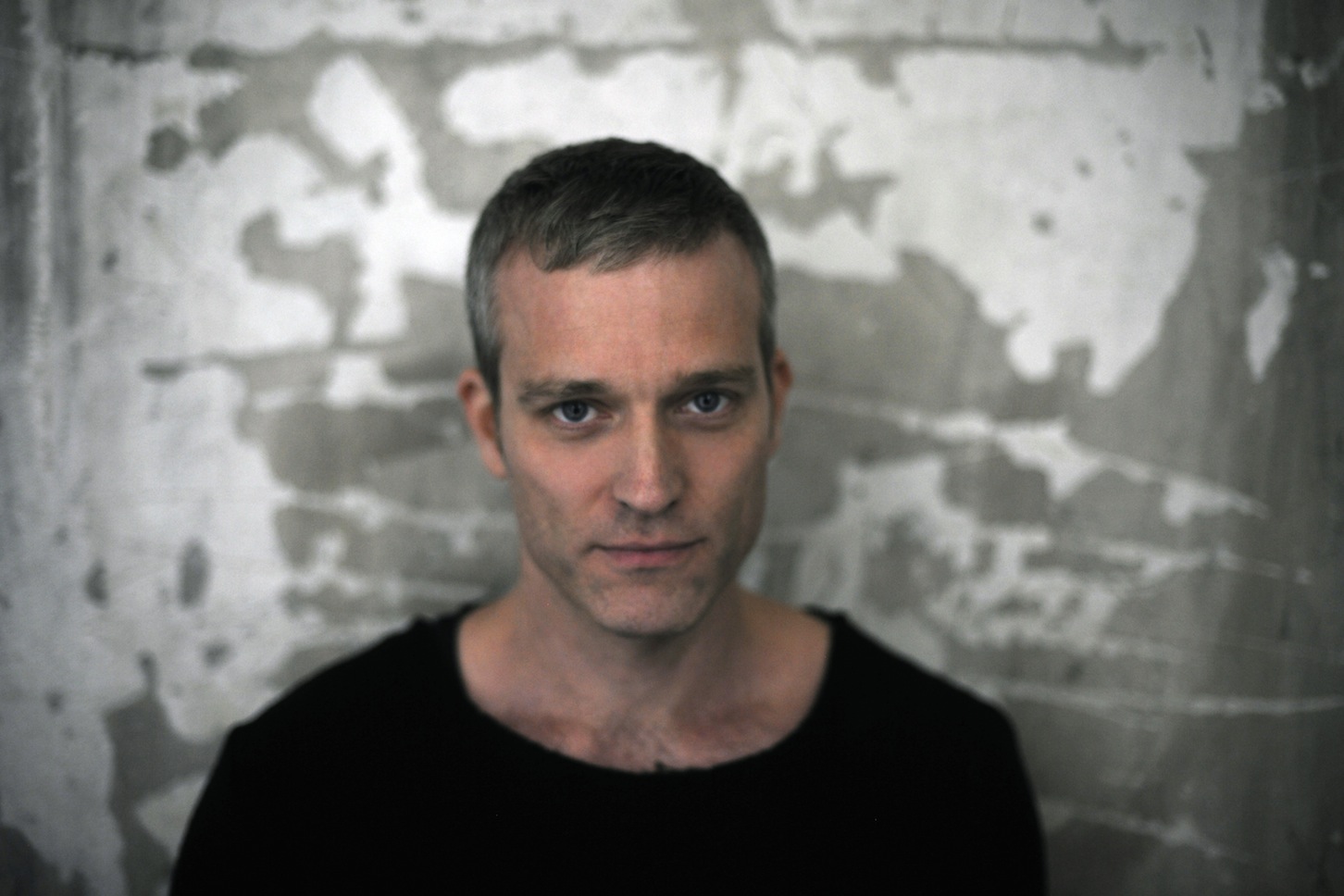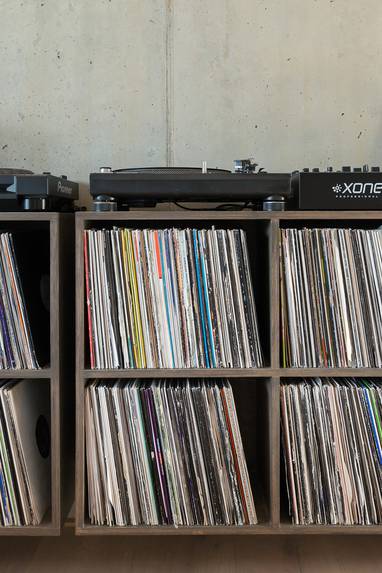Interview: Ben Klock
A techno titan opens up about doubt, inspiration, and passion.

Interview: Ben Klock
A techno titan opens up about doubt, inspiration, and passion.

Far in the distance and irreconcilably aloof, he stands. The expectant crowd is hypnotized, entranced in the music as they move in unison to the raw and powerful techno beat. And then it comes: another irresistible bassline, another crescendo of elation—but Klock appears unmoved, wide-eyed yet stone-faced as he conjures up the next chapter in his compelling 13-hour narrative. It’s an exquisite scene, the very height of hedonism, but one that depicts Klock as nothing more than a ruthless techno machine incapable of sentiment or emotion. Only by sitting down with him at his beautiful Berlin apartment did I discover a softer, human side to Klock’s character, one that is reflected in the deeper and warmer segments of his infamous DJ sets, but so commonly overshadowed and obscured by their relentless nature.
I meet Klock at the headquarters of his label, Klockworks—a small apartment/office building located towards the east of the city in Friedrichshain. He texts to say he’s running a little late, but arrives with enough time to make some quick decisions over the material for the vinyl cases of the label’s upcoming releases. There is a charming modesty to Klock; there is almost no ego, or one that is at least immediately apparent, despite a great pride in the quality of his work and a clear personal recognition of his artistic prowess. He stores all his productions in a rather grand corner of his similarly spacious modernist apartment, and carefully reviews each and every prototype presented to him before choosing his favorite.

“I’m starving,” he says. “Let’s grab some breakfast and then we can do the interview.” He leads me out to his black BMW, and opens the boot to reveal a plethora of miscellaneous household objects, before joking about the personalized ‘BEN’ number-plate: “It only cost me 12 euros!” he says, grinning.
Klock’s underlying motivations for DJing are as strong today as ever. There is an insatiable hunger when he talks, an underlying passion that can stem only from a profound love for what he does. He sits up and smiles as he describes the feeling of “goosebumps” when he “drops the right track at the right time’ and forms a “deep connection with the crowd,” before pausing to bask in the moment, as if revisiting it in his own head.
“I still see DJing as about 20 percent as a job, but 80 percent as doing what I love—or trying to achieve a vision,” he says. “Of course, there is a business side to it, but I still need to feel the core of it; I still need to feel the passion for it,” he adds, before reflecting on his answer. “If there are times where I don’t really feel the energy then I have to adjust quickly because then my role as a DJ won’t work. I have to have passion for it otherwise I cannot be good.”
But from where does this underlying motivation originate? Where has he drawn the inspiration to play regular eight-hour marathon DJ sets and travel all over the world almost every single weekend for the best part of a decade?
Appreciation for his circumstances is certainly a continuous source. Despite the fortune and fame that has come his way over recent years, there remains an endearing humility deeply engrained in his nature, and Klock himself no doubt recognizes the fortunate position in which he finds himself. But looking at his status today, comfortably positioned amongst the best DJs in the world, it’s easy to overlook the numerous doubts and difficulties he has had to overcome to find his place in music. “For me, it has not always been easy,” he says. “I have struggled a lot and had a lot of different jobs so I have seen a lot of different things—and I think that makes me appreciate it even more.”
“At many points in my life, I thought I would never get anywhere; I just thought success was not for me,”
Klock knew very early on that he wanted to be a musician, but never felt destined for success. “At many points in my life, I thought I would never get anywhere; I just thought success was not for me,” he says, clearly moved as he reflects on quite how far he has come. “I had to fight very hard to get rid of these thoughts,” he says.
Following a period of small-scale success throughout the late ’90s with a series of residencies at Cookies, WMF and Tresor in Berlin, the prominence of house music and the absence of a residency slot saw him lose the love for music and come “very close” to quitting in the early ’00s. “There was a period where I doubted whether DJing was what I had to do,” he says. “I had no connection to music anymore; I didn’t have anything that really made me a DJ, so it was almost a natural process of moving out of it,” he adds, pausing for thought. “But there was always this thing in the back of my mind that I hadn’t found my right surrounding or my right place yet, which was then coming.”
This thing was Berghain, the launching pad for his career, granting him a residency in 2004 and eventually giving Klock the confidence to quit his freelance graphic design position some three years later. “I would normally say I would never have imagined this, because this, what I am doing now, is just crazy, and I never really felt like I could be a success,” he says. “But there was definitely another part of me that really envisaged exactly this—and maybe this was just the stronger part.”

Innovation and experimentation, too, continue to play a fundamental role in Klock’s relentless march towards techno immortality. “If techno just repeats itself again and again, then at some point this copy-paste music will become uninteresting,” he says. “So it is important that I keep looking for new ideas, inspiring myself without necessarily changing my direction musically.” It’s his marathon sessions, at Berghain or beyond, that provide a testing ground for his latest material, pushing him to ‘”come up with something new” with the intimacy of those sessions providing an important source of inspiration that shorter festival sets cannot offer. “[Small club shows] are not about how much money I earn, but more about giving me a connection to a smaller crowd just to keep myself inspired,” he says.
Linked to this is a desire to test himself as an artist and continue spreading his music. “There are some shows I choose because I want to push myself artistically—it’s good to have a side where I do not feel too comfortable,” he says, before specifically referring to Coachella, a festival absent of any preexisting roots in deep and powerful techno. “This side is challenging, but I love this feedback when somebody tells me that they were never into techno but that that night I changed their idea of it,” he says. “At that beginning, they are just standing there and and after half an hour they are all dancing—and I can see their enjoyment in their faces. It’s an amazing feeling being somebody’s first step into this kind of music.”
As the conversation progresses, it becomes apparent that hidden beneath this gentleness is a self-driven and calculated perfectionist completely dedicated to his art. “Being [at the top] is one thing but staying there is hard, so I have to keep working,” he says. “I get super-frustrated if a show does not go so well, and I have to pick it apart from the technical standpoint to figure out which tracks or which transitions didn’t work,” he adds. “But the bigger side is the emotional side—why didn’t I have the energy that night? What bothered me? What are the circumstances that I have to change to be better again?”
Klock’s vision, ever since his early years, has never been in doubt, and driven by this deep-rooted intuition and desire to succeed he has committed his life’s energies to achieving his goal. Gone are the days of hesitation—Klock has evolved into a stalwart of the Berlin techno scene, an influential symbol of direction and self-belief.
“Criticism is far more common today than it used to be, but I have had to learn to deal with it because if you get too much involved in this it drags your attention away from what is important,” he says. “But I do not doubt my ability to be a DJ because I know that I can be amazing; I have had so many amazing shows and special moments, like magic moments—but there will always be times when it doesn’t click.”

Even today, he continues to work without a manager, a decision based on a desire to retain control of his artistic endeavors. “It is good to have a really good agent and I work with a few people, but I still want to be the guy to make the decisions and to say the direction we are going in,” he says. “Sometimes I just know but sometimes I have a little bit of doubt, and I will ask for feedback from a few trusted people.”
Away from his DJing, Klock has limited his production output to little more than a few sporadic EPs following the release of his critically acclaimed debut album on Ostgut Ton, 2008’s One, a stunning piece of contemporary techno that helped him overcome the tragic death of his mother. However, there are now signs that Klock will soon re-enter his “cocoon” of a studio and put an end to this hiatus. “The music production has always been important, and even if I don’t do it for a while, I will always come back to it,” he says.
Klock’s love affair with music production dates back to his early childhood, but his growing reputation as a DJ and a corresponding pressure to re-enter the studio saw this love fade, leading him to focus his energies on DJing. “At that point, I made the conscious decision to make sure that when I did return to the studio, I wanted to be like a beginner again; I just want to go in with no pressure or idea of whether it’s going to be an EP or an album – let’s just see. This studio is now my little bubble and I just want to play around like a kid again,” he says.
“For long periods I have felt much more useful now as a DJ, but now I could be very happy locked in the studio for six months.”
“I have been waiting for the moment until I wanted to go back into the studio. It hasn’t been there for a while, and I didn’t miss it at all, but now it just feels right,” says Klock. “Apart from traveling so much and not having time, I didn’t feel like I had anything new to say. For long periods I have felt much more useful now as a DJ, but now I could be very happy locked in the studio for six months.”
As I begin to question Klock on his life outside music, he laughs, finding humor in the fact that he doesn’t really have one. “From early morning until late night, music is constantly there,” he says. “I sometimes think that people work nine to five in the week and then they have a weekend—but I don’t have one. In a way, of course I am free and have my own schedule, but I am never really free from that job. I can’t even really watch a movie without being distracted, and this can be hard for me.”
Microphone off and interview over, the conversation continues as Klock describes his love for Berlin and recalls how honored he was that his 75-year-old father once attended his show at Berghain. The character before me is one so undiscovered by the public eye that it is hard to fathom that this is the Ben Klock so infamous for the the aggressive, ferocious nature of his sets.
“There is certainly a hard, powerful side [to my music] but there is also a warm, emotional side to it—and together, this is what gives it a journey,” he says. That description bears equal truth to both his work and the man behind it all.
Ben Klock is currently on tour:
Q Nightclub, Seattle: April 16
Coda, Toronto: April 17
Spy Bar, Chicago: April 18
Coachella: April 19
Nuits Sonores: May 14
Crobar, Buenos Aires: May 22
Movement, Detroit: May 24

